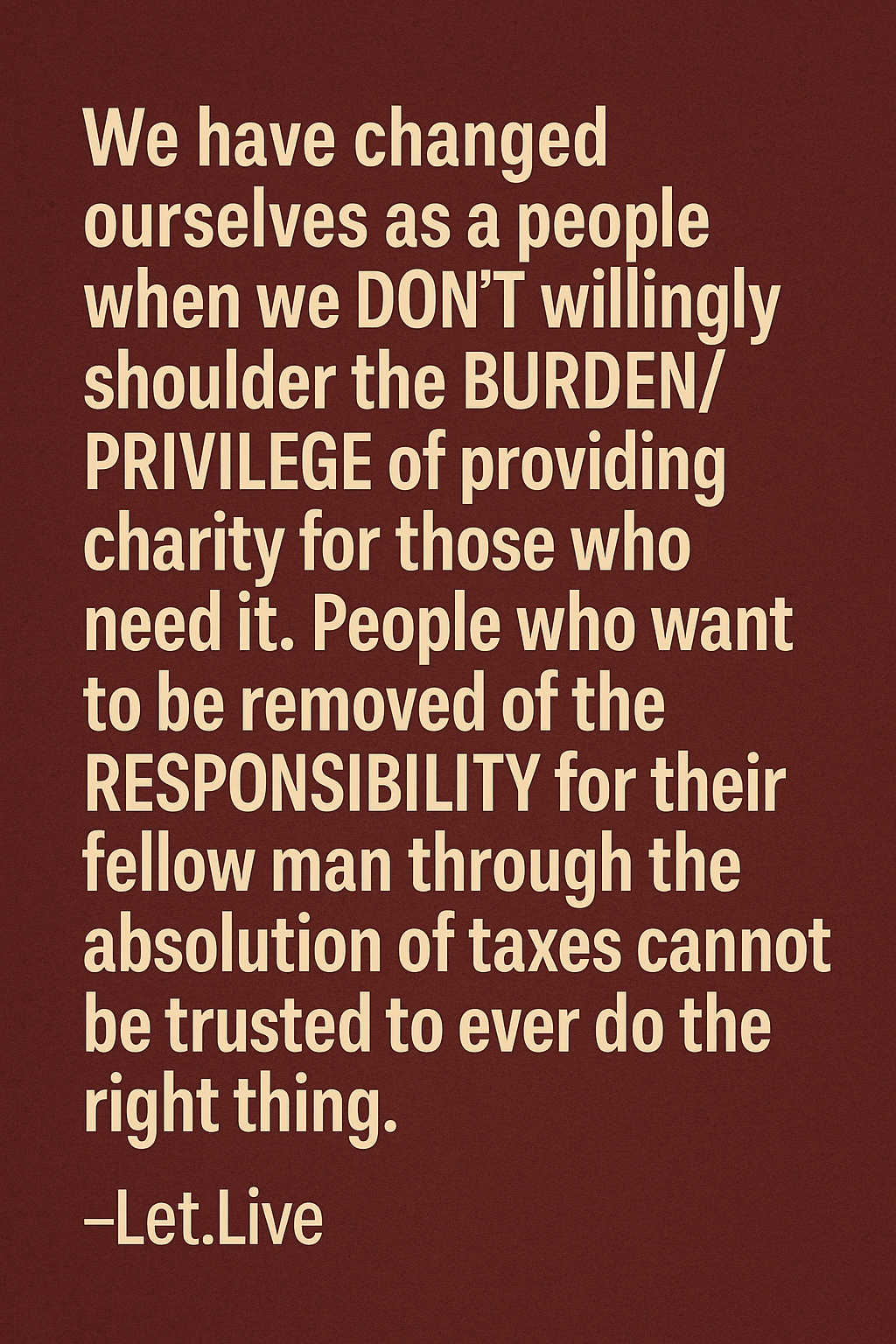“We have changed ourselves as a people when we DON’T willingly shoulder the burden/privilege of providing charity for those who need it. People who want to be removed of the responsibility for their fellow man through the absolution of taxes cannot be trusted to ever do the right thing.” — Me
At the heart of any civil society lies a quiet moral contract—not written in law, but imprinted in the conscience: we take care of each other. The quote above speaks to a crucial turning point in our collective character. When we start seeing care for others not as a duty of community, but as a burdensome tax obligation to be minimized, we begin to unravel the very fabric of empathy and shared responsibility that holds society together.
Charity Is Not a Transaction
True charity isn’t a transaction enforced by law. It’s a voluntary act—rooted in compassion and a sense of mutual respect. It doesn’t wait for permission. It doesn’t seek a deduction. When we shift our mindset to see charity as a government function, administered through faceless bureaucracies and funded by reluctant taxes, we remove ourselves from the human connection it requires. We offload the responsibility. We numb the impulse.
That transformation matters. Because once charity becomes merely a line item in a budget or a checkbox on a tax return, we no longer grow through the practice of generosity. We insulate ourselves from the moral growth that comes from seeing others, struggling, and saying, “I will help.”
The Illusion of Absolution
There is a dangerous comfort in thinking that taxes absolve us. That once we’ve paid our dues, we are no longer morally responsible for the suffering around us. But moral duty doesn’t scale with your tax bracket. It’s not the job of government to do what only the human heart can do: extend grace, offer help, see dignity in every person.
When people ask to be relieved of their obligations to their fellow man through systems that shift responsibility elsewhere, they reveal something deeper. Not just resistance to taxation—but resistance to care. And a society that trains itself to look away, or to leave it to someone else, cannot be trusted to protect the vulnerable when the system inevitably fails.
Let.Live and the Voluntary Ethic
At Let.Live, we believe that the foundation of a tolerant, ethical, and just society rests on voluntary association and shared humanity—not coercion. Charity is not merely a good deed; it is a reflection of our values. And values must be chosen, not mandated. The health of a culture is shown not in the size of its safety net, but in how many hands are outstretched to hold it up.
Yes, we may need systems to ensure no one falls through the cracks. But we also need people—people who see the cracks and act. People who understand that charity is both a burden and a privilege. And that the act of giving freely isn’t just about lifting someone else—it’s about lifting ourselves into something nobler.
Let’s Be the People Who Show Up
To be worthy of freedom, we must be worthy of trust. And to be worthy of trust, we must take responsibility. Let’s not pass that responsibility off to institutions that will never care as deeply as neighbors can. Let’s embrace the privilege of charity—not because we have to, but because it makes us human.

Comments are closed